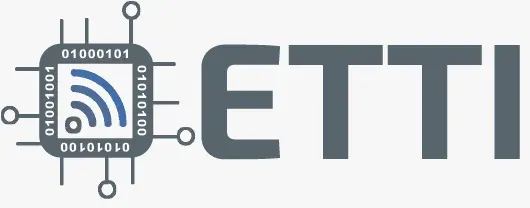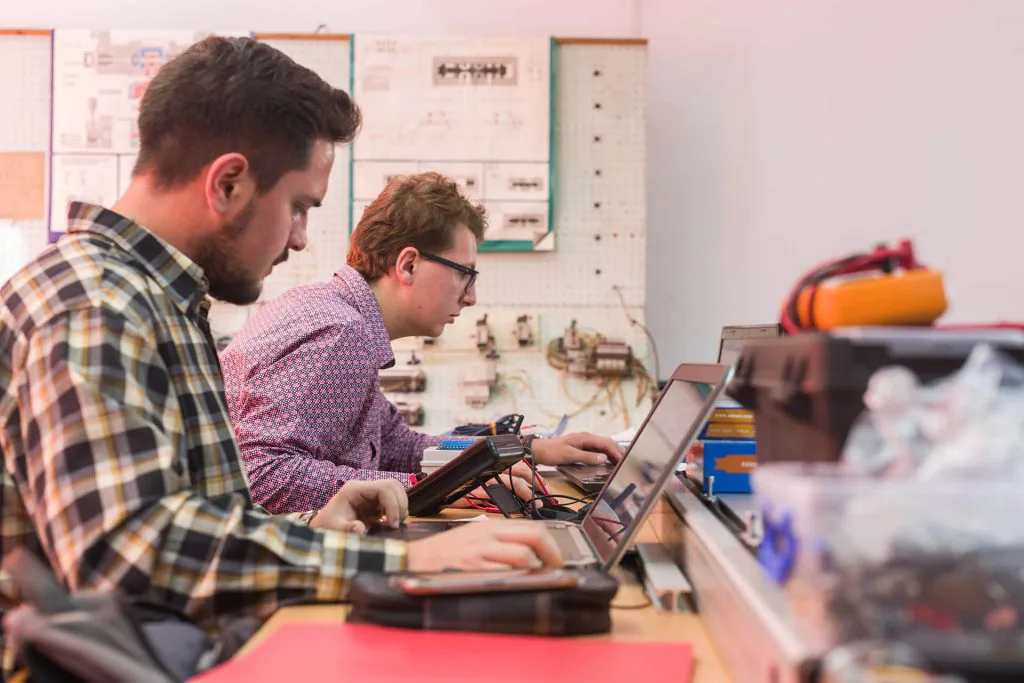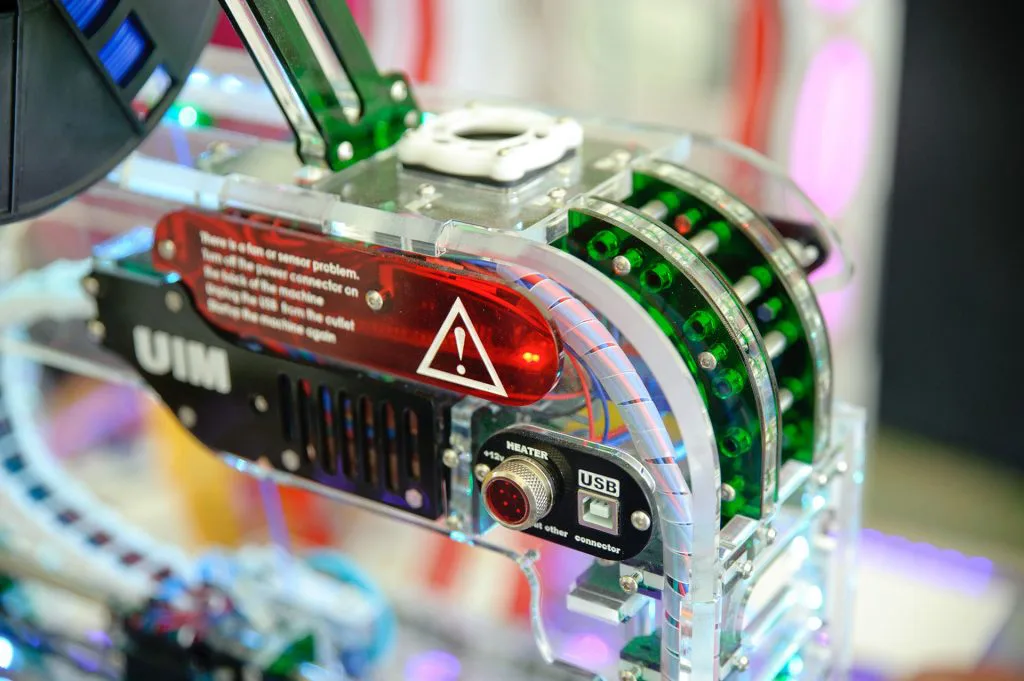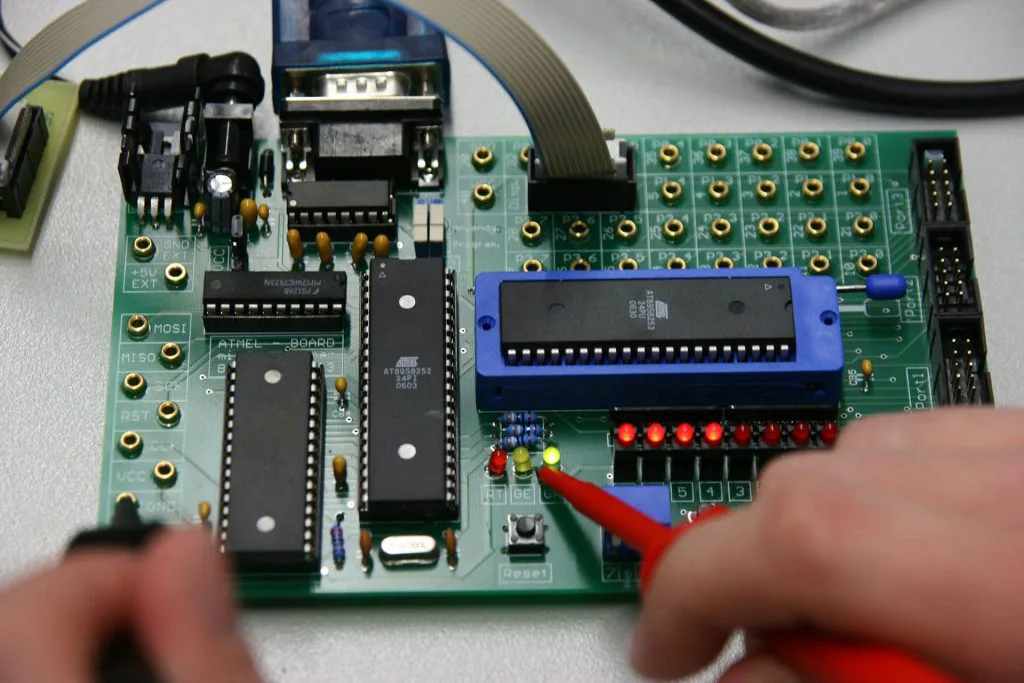Dean: Prof. dr. ing. Mihnea UDREA
Vice-Dean: ș.l. dr. ing. Rodica – Claudia CONSTANTINESCU
Vice-Dean: conf. dr. ing. Carmen FLOREA
Vice-Dean: ș.l. dr. ing. Marius ENĂCHESCU
Vice-Dean: ș.l. dr. ing. Mihaela PANTAZICĂ
Vice-Dean: conf. dr. ing. Laura – Maria FLOREA
Vice-Dean: conf. dr. ing. Răzvan – Eusebiu CRĂCIUNESCU
Director de departament
S.l.dr.ing. Serban Georgică Obreja
Telefon: +4021-402 46 34
Dispozitive, circuite si arhitecturi electronice
Director de departament
Prof. dr. ing. Claudius DAN
Telefon: +4021-402 48 14
Tehnologie electronică si fiabilitate
Director de departament
Conf. dr. ing. Marian VLĂDESCU
Telefon: +4021-402 46 71
Electronica aplicata si ingineria informatiei
Director de departament
S.l.dr.ing. Bogdan Cristian Florea
Telefon: +4021-402 46 73
Adresă
B-dul Iuliu Maniu 1-3, cod postal 061071, sector 6, Bucuresti, Local Leu, corp A, et.1,
Telefon / Fax
Tel: + 4-021-402 46 18
Tel: + 4-021-402 47 81
Email
decanat@electronica.pub.ro
secretariat@electronica.pub.ro
Website
www.electronica.pub.ro
Fields of study
Applied Electronics (AEL)
Applied Electronics (in english)
Telecommunications Technologies and Systems (TST)
Telecommunications Technologies and Systems (in english)
Telecommunications Networks and Software (TNS)
Microelectronics, Optoelectronics and Nanotechnologies (MON)
Information Engineering (INF)
Sisteme inteligente şi vederea artificială
Advanced microelectronics / Microelectronică avansată
Advanced wireless communications / Comunicaţii fără fir avansate
Circuite şi sisteme integrate de comunicaţii
Comunicaţii mobile
Comunicaţii multimedia
Electronică şi informatică aplicată
Electronică şi informatică medicală
Ingineria calităţii şi siguranţei în funcţionare în electronică şi telecomunicaţii
Ingineria informaţiei şi a sistemelor de calcul
Managementul serviciilor şi reţelelor
Microelectronică şi nanoelectronică
Microsisteme
Optoelectronică
Reţele integrate de telecomunicaţii
Tehnici avansate pentru imagistica digitală
Tehnologii integrate avansate în electronica auto
Tehnologii multimedia în aplicaţii de biometrie şi securitatea informaţiei
Tehnologii multimedia pentru aplicaţii medicale
Tehnologii multimedia pentru producţia de conţinut în domeniul audiovizualului şi comunicaţiilor
Tehnologii software avansate pentru comunicaţii
Telecomunicaţii
Mai multe informatii

The Romanian school of Electronics and Telecommunications was set up in 1920 as part of the Polytechnic School of Bucharest. This later developed as a distinct specialization called Telephony -Telegraphy within the Faculty of Electromechanics (1924), which will later evolve as a distinct department called Electrocommunications (1929). The Faculty of Electronics was set up in 1953 as a branch of the Faculty of Electromechanics, including the departments of Electronics, Radiocommunications and Telephony -Telegraphy.
The Faculty of Electronics, Telecommunications and Information Technology has an impressive location of about 20,000 sqm in the Leu campus. This campus offers very good conditions. The Faculty of Electronics, Telecommunications and Information Technology occupies two buildings with laboratories and classes at the centre of the campus. Other important buildings are the Students’ Centre, with about 500 comfortable rooms, the gym, the medical centre, three restaurants, etc. The Faculty of Electronics, Telecommunications and Information Technology provides its undergraduate and graduate students with a wide range of educational opportunities.
The teaching staff, having rich experience in research, teach classes both to graduate and undergratuate students in the fields of Electronics, Microelectronics, Computer Engineering and Telecommunications. In all these fields the emphasis is on acquiring both theoretical and practical knowledge. All courses are devised so as to meet all educational and training requirements in accordance with the current top technology in order to be useful to the industry and business organizations based on technology transfer in Romania. As a result of the strong collaboration with the industry and business environment, the faculty has answered the increase in the graduates recruitment demand by means of a larger amount of knowledge, including a degree in both the technological field and in the economic and managerial one.











